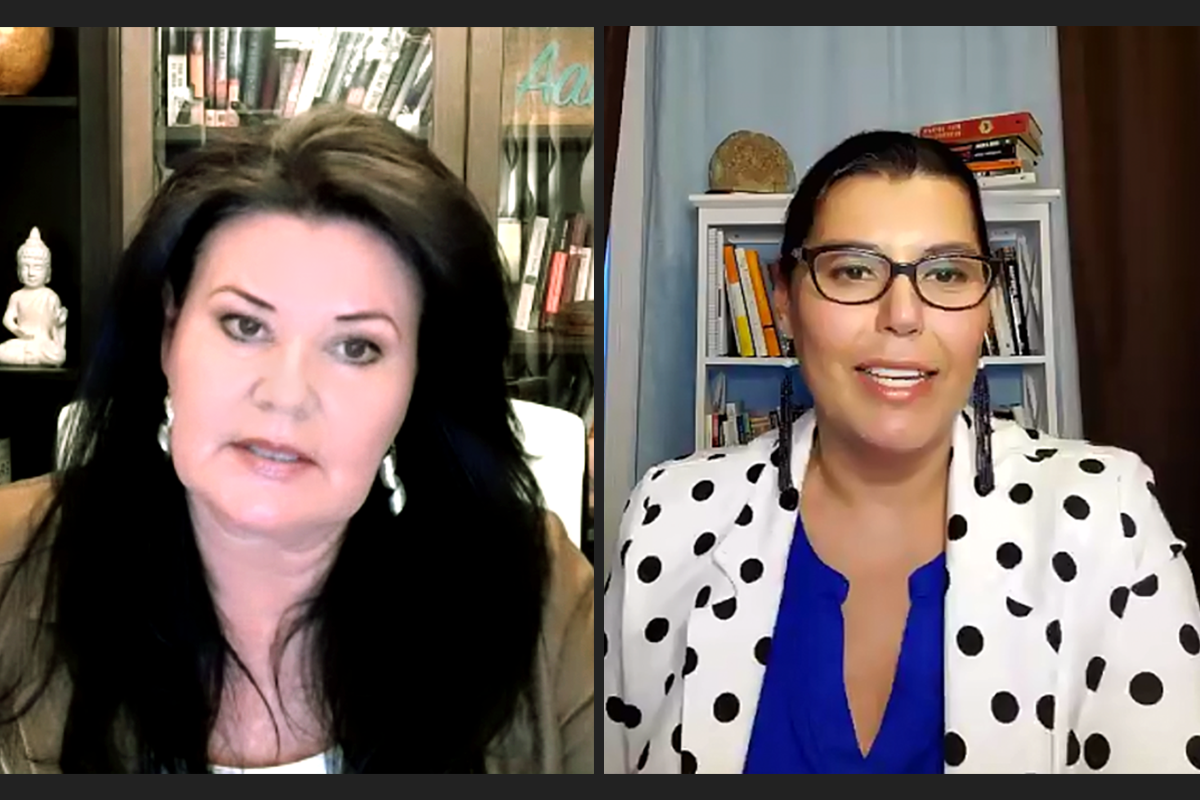
Melanie MacKinnon and Dr. Marcia Anderson gave the virtual keynote address at the 11th annual Teacher Recognition and Manitoba Medical Students’ Association (MMSA) Awards presentation on Feb. 24.
‘Transformative work in real time’
First Nations-led pandemic response a model for self-determination, speakers say
Long-standing collaborative relationships between a University of Manitoba health institute and Indigenous communities laid the groundwork for UM to support a First Nations-led response to COVID-19, two health leaders said in a recent keynote address.
And that self-determination in health care, they said, is the way of the future.
Ongomiizwin – Health Services is a branch of Ongomiizwin, the Indigenous Institute of Health and Healing in the Rady Faculty of Health Sciences. Formerly known as the university’s northern medical unit, it has served communities in northern Manitoba and Nunavut since 1969. It has played a key role in supporting the Indigenous response to the pandemic.
“We’ve been doing outreach medicine for half a century, and doing that work has created tremendous relationships with our communities in Manitoba and Nunavut,” said Melanie MacKinnon, a Cree nurse who is head of Ongomiizwin and executive director of its health services branch.
“Our core business is building and maintaining relationships. And that work has prepared us to support our population to get through this pandemic.”
MacKinnon and Dr. Marcia Anderson, vice-dean, Indigenous health of the Rady Faculty, jointly gave the virtual keynote address at the 11th annual Teacher Recognition and Manitoba Medical Students’ Association (MMSA) Awards presentation on Feb. 24. About 150 students, teachers, faculty and deans from the Max Rady College of Medicine attended via Zoom.
Ongomiizwin – Health Services has coordinated the Rapid Response health-care teams that have been deployed more than 50 times to communities by the Manitoba First Nations Pandemic Response Coordination Team (MFNPRCT), a partnership between four First Nations organizations. Each team works in support of the local health workforce and with community leaders.
Anderson, a Cree-Anishinaabe physician who is executive director of Indigenous academic affairs for Ongomiizwin, is the public health lead for MFNPRCT. She outlined several ways in which First Nations people have been disproportionately affected by COVID-19, noting the importance of data that has been collected by First Nations experts.
There is a misconception, she said, that reserves are the main place where First Nations people are at risk for the disease.
“Of the 9,689 cases that First Nations people had experienced as of last Friday (Feb. 19), 4,386 were on-reserve and 5,303 were off-reserve,” Anderson said. “Our relatives who live off-reserve in urban centres … are at at least the same risk for COVID-19 because the impacts of racism and colonization don’t stop at those reserve boundaries.”
First Nations people experience severe outcomes from the disease at younger ages than other Manitobans, Anderson said. “The median age at hospitalization [of First Nations people] is 51 and the median age of death is 66, which is a full 17 years lower than it is for the general population.”
MacKinnon has led the design and oversight of the Rapid Response teams. Although greater Indigenous control and self-determination in health care have been discussed in theory for decades, she said, it took COVID-19 to propel the idea into made-in-Manitoba reality.
“The pandemic of the century forced us all to act, and to take those conceptual plans and actually implement solutions,” she said. “First Nations are truly leading system reform.”
Anderson agreed, describing the collaborative COVID-19 response as “transformative work in real time” and “a great example of what working in the spirit of reconciliation means.”
Prior to Anderson and MacKinnon’s remarks, the Teacher Recognition Awards were presented virtually. The awards, voted on by medical students, honour teaching excellence in categories such as innovation, inspiration, mentorship, patient advocacy and small-group teaching.
Five medical students also received awards in the categories of citizenship, global health, community service, leadership and professionalism.
The list of teacher and student winners can be found on the MMSA website.






